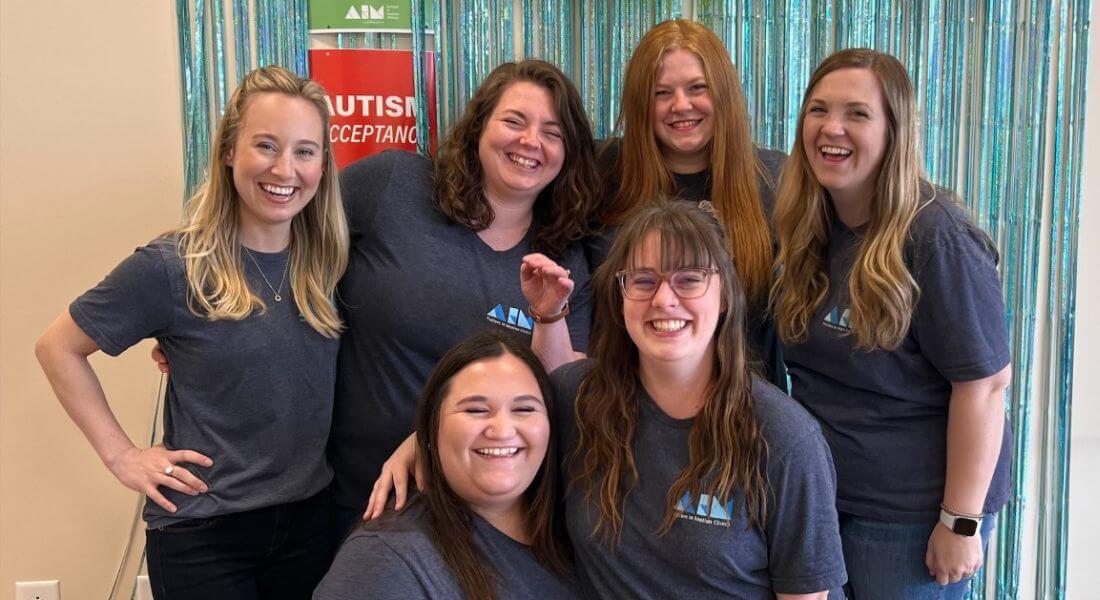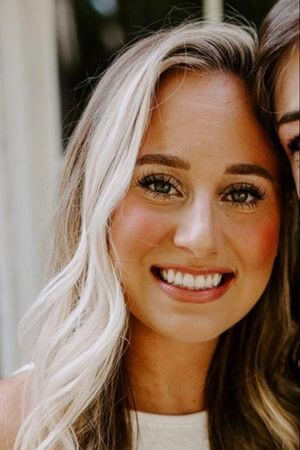How to Grow a Career as a BCBA: Clinical Director Meg Moore Advances Field of ABA at Hopebridge
October 19, 2022
October 19, 2022

As nearly everyone in the autism community will tell you, building relationships with this population of children is incredible. Working in autism therapy is fun, challenging and life changing. It’s why so many who connect with this community choose to spend extra time studying to become board certified behavior analysts (BCBA) or other licensed clinicians.

These roles offer fulfilling and rewarding experiences in and of themselves. They touch the lives of children and families by supporting them through life’s obstacles, as well as by helping them discover and enhance their biggest strengths.
It’s completely natural, however, for some clinicians to ask, “What’s next along my BCBA career path? How can I expand my care for others? How can I make a bigger impact while continuing to develop my own skills?”
For some, the answer is found by continuing their education and evolving autism care through specialized training opportunities. For others, it’s the opportunity to expand access to services by opening new clinics, or the chance to participate in eye-opening research.
For Hopebridge’s Meg Moore, moving forward in her career means advancing the field of applied behavior analysis (ABA) toward even more ethical, client-first practices, as well as multiplying her reach through a clinical leadership role.
Serving as clinical director of Hopebridge’s autism therapy center in Hendersonville, Tenn., Meg focuses on training, Plan of Care (POC) oversight and clinical quality with her team, all while maintaining another key responsibility within her role: continuing to provide behavior analysis to children through her own caseload.
What Meg enjoys most about her job as clinical director is the ability to develop her own leadership and administrative skills, while also continuing to have direct contact with children.
“It’s the best possible combination. I had never heard of it before joining Hopebridge. I thought you either move up in the company into an administrative position or stay as a BCBA, which is why having this middle ground is so thrilling,” said Meg.
“Personally, I would not want to move into a position where I didn’t have a caseload, but I still want to grow within the company. Plus, it’s difficult to provide feedback on a science if you’re not implementing it. This was the perfect step for me because I am able to move forward in my career while remaining close to our kids and the science that I love. I get to practice what I preach.”
Meg is passionate about training. Her top priority is to pass along her knowledge to help create the best possible behavior technicians and BCBAs for our children.
In addition to training, her role adds layers of checks and balances to ensure clinical quality.

“In other places, I’ve seen how BCBAs pass their exams and are sometimes thrown into the job with little to no oversight. Here at Hopebridge, our clinical directors dedicate our time to reviewing treatment plans for other BCBAs, especially providing support to those who may be newly credentialed,” said Meg.
By reviewing POCs, she is able to make sure programming is individualized and socially significant for each child and family. She serves as a sounding board for the team in a productive manner that allows them to grow their own skills while they are training RBTs to provide therapy in the most effective, compassionate ways possible.
“It prevents anything from slipping through the cracks. Even a BCBA with the best intentions may be able to do something in a better way,” said Meg. “It’s extremely beneficial and helps us enhance our clinical excellence for the families we serve.”
Meg also gets excited about the collaboration within her role. She enjoys her brainstorming sessions with other BCBAs. As a clinical director, she can dedicate specific time to each of them, giving them the opportunity to share any concerns and listen to feedback. She also appreciates her connection with the center manager, in which they are able to combine their leadership to build their own skills in navigating systems, team relations and clinical areas.
“My team has told me they love knowing there is someone whose entire job is to look out for them. This is what reinforces me; knowing that I not only offered knowledge to a BCBA, but that it also helped the children they work with gain better access to therapy. I’m able to reach even more kids this way, which is extremely fulfilling,” said Meg.
Since beginning in ABA, Meg has been creative in developing in her career. Her job growth began even before serving as a clinical director, and each step she took added to the experience that brought her into her current position.

With an undergraduate background in audiology and speech, Meg was drawn to the behavioral side after serving as a clinical assistant in a pediatric therapy clinic. After meeting with the clinic’s BCBA and learning more about ABA, she immediately applied to graduate school and started work as a Registered Behavior Technician (RBT) for another provider before becoming a BCBA and moving onto AIM Clinics (now part of Hopebridge Autism Therapy Centers).
“When I passed my BACB exam, I took over the caseload at the clinic I worked for at the time. In our field, there is always room for growth, and from the ethical standpoint, I felt the place I was working at did not embrace those changes,” said Meg. “Then I learned about an opportunity at AIM, which interested me because I wanted to join a company that focused on client-based therapy. The change was wonderful because I was able to work with like-minded clinicians who always put our kids first.”
One of AIM’s first hires in Tennessee, Meg got to work building the Brentwood clinic’s team and programming from the ground up by implementing schedules, an RBT training program and more, before moving into the Hendersonville center.
“As you move between clinics, it adds to your repertoire. Every experience in my career builds off my past experiences. I use them to produce the best ABA we possibly can for our children,” said Meg.
Learning and growing is what we do here at Hopebridge—from the kids to our clinicians. We’re always looking for ways to enhance our opportunities for growth at every level, through specialized training, fellowships, free CEU, leadership development programs, collaboration and more.
If you are looking to grow your own career with a provider whose top priorities are expanding access to effective, compassionate care and spreading clinical innovation, we hope you’ll join us on this mission. Apply for an open position in one of our locations across the country to fulfill your own dreams as you help our kids and families make theirs come true, too.

Favorite children’s book: “Harry Potter and the Goblet of Fire. I’m a huge Harry Potter fan. My husband and I went to Harry Potter World for our honeymoon and I have a tattoo of the Deathly Hallows symbol.”
Fun fact: “I have a bearded dragon named Severus, who I got for my 30th birthday.” (Yes, named after the Harry Potter character!)
What she does outside of the centers: “My husband and I are big homebodies. We love hanging outside with our dogs and grilling in our backyard.”
If she could have any superpower it would be: “The ability to pause time so I have more time in a day.”
*Informed consent was obtained from the participants in this article. This information should not be captured and reused without express permission from Hopebridge, LLC. Testimonials are solicited as part of an open casting call process for testimonials from former client caregivers. Hopebridge does not permit clinical employees to solicit or use testimonials about therapeutic services received from current clients (Ethics Code for Behavior Analysts 5.07-5.08; BACB, 2020). Hopebridge does not provide any incentives, compensation, or renumeration for testimonials provided by a former client or client caregiver.
Team Spotlight
July 25, 2022
Hopebridge Clinical Director Lives Out the Mission to Serve Others
Team Spotlight
July 25, 2022
Moving for the Cause: Hopebridge BCBA Answers the Call to Serve
Team Spotlight
December 06, 2022
How One Hopebridge Team Expands Care to Thousands of Families
Team Spotlight
October 10, 2022
How Hopebridge Finds the Best Clinicians for its Autism Therapy Team